Our story
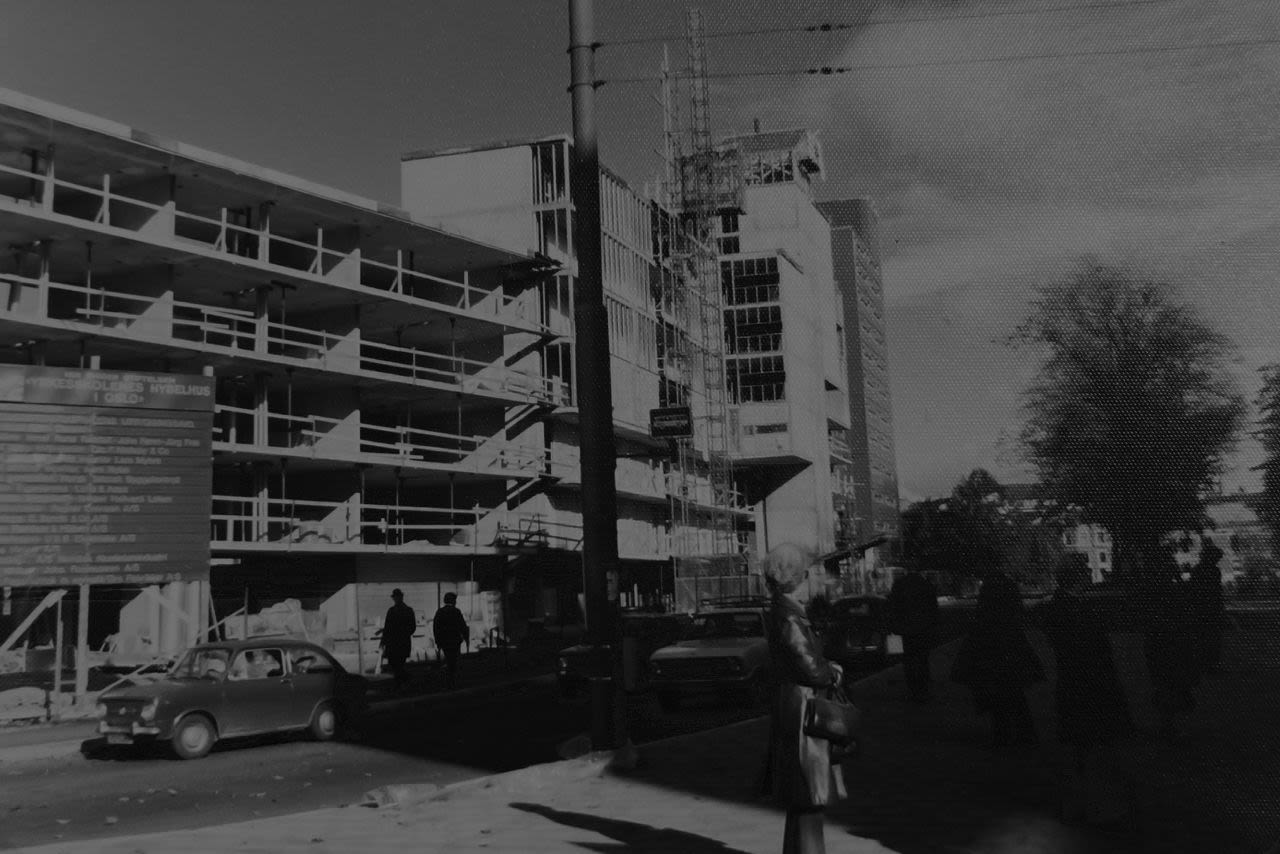
Improving student living, since 1975
Let us take you on a journey through the dynamic world of the Anker Foundation (Stiftelsen Anker).
Our purpose is clear; to improve the student housing situation in Oslo.
Through the years we've embraced the spirit of versatility. In addition to our housing initiatives, the Anker Foundation ventured into the realm of hospitality and other commercial activities. All in the spirit of making our mission economically sound.
Join us as we delve into our ever-evolving story, a tale of community, resilience and expansion.
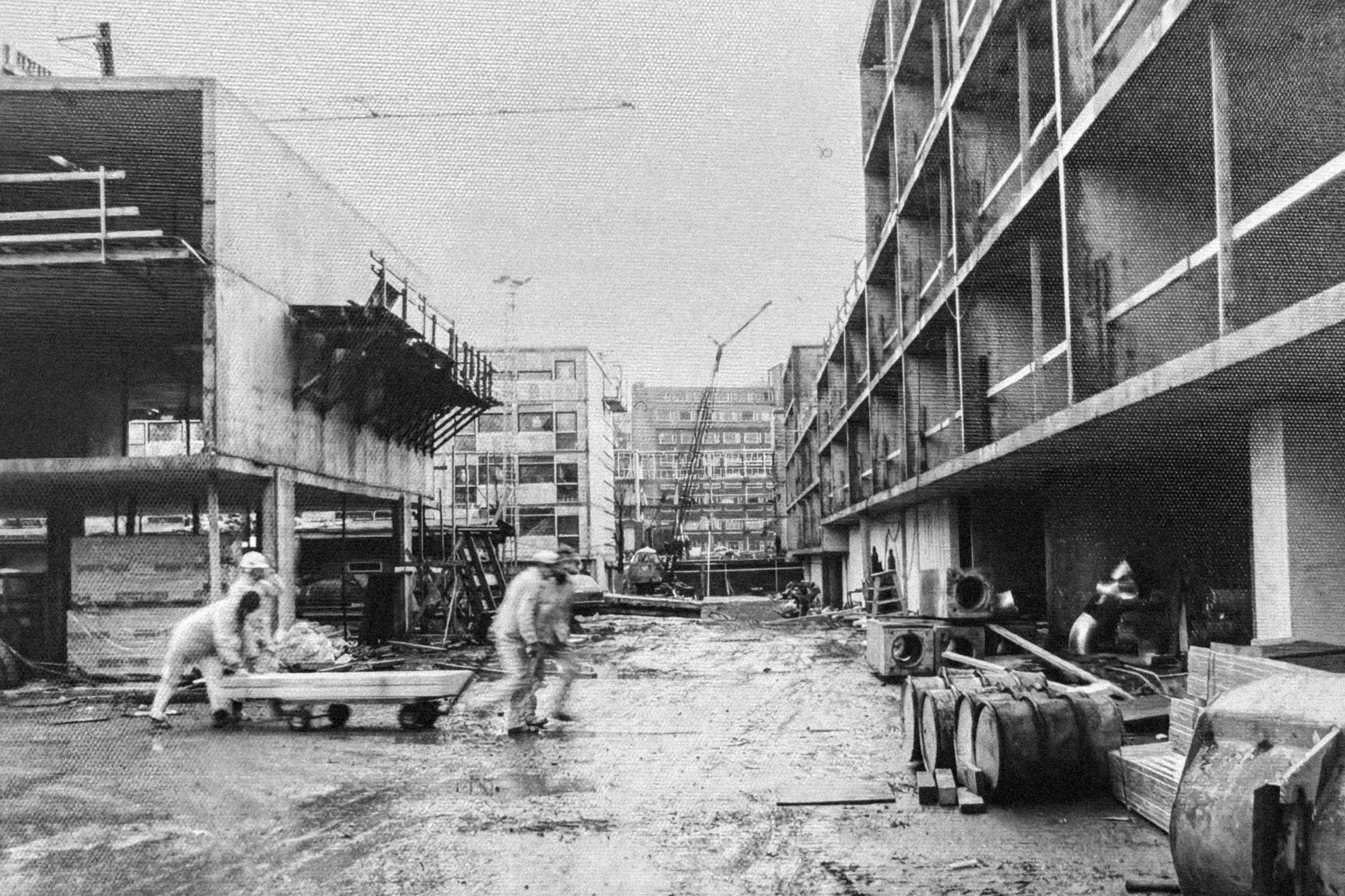
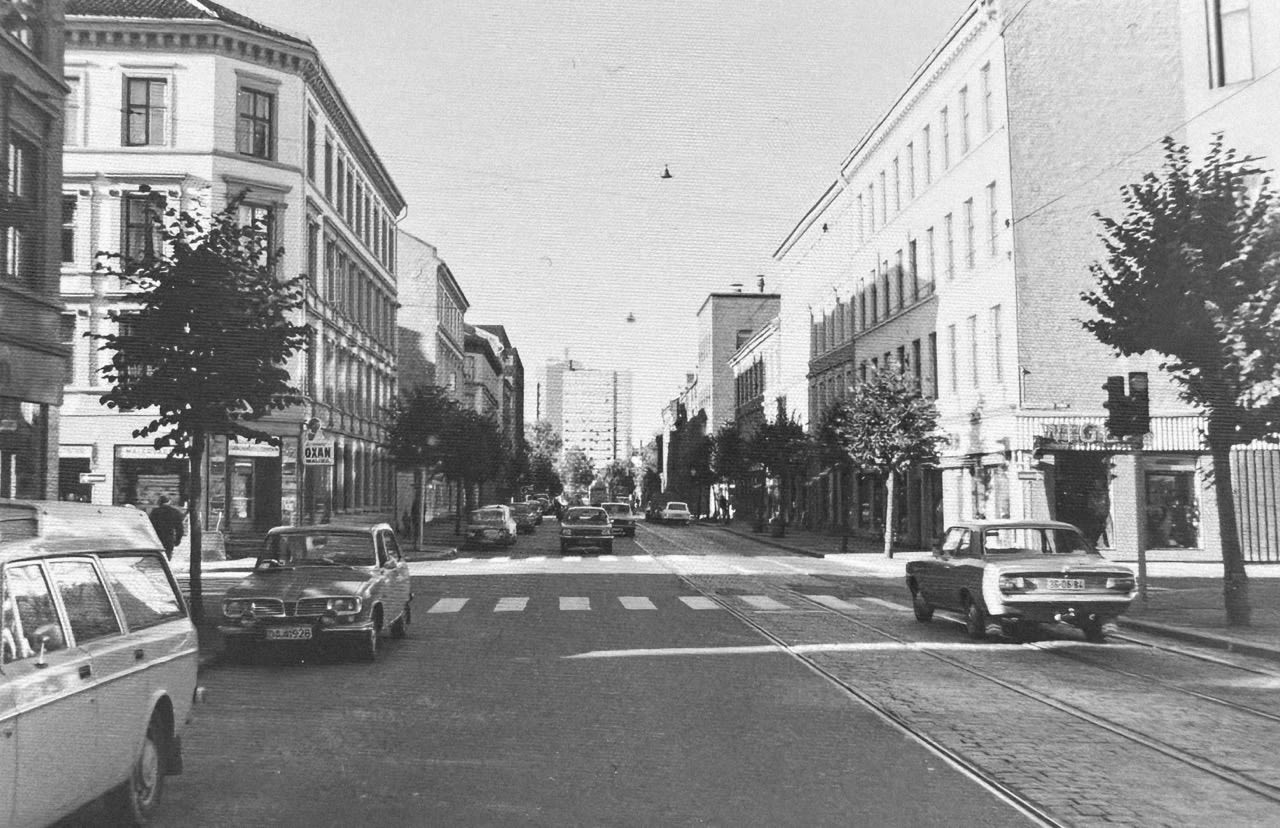
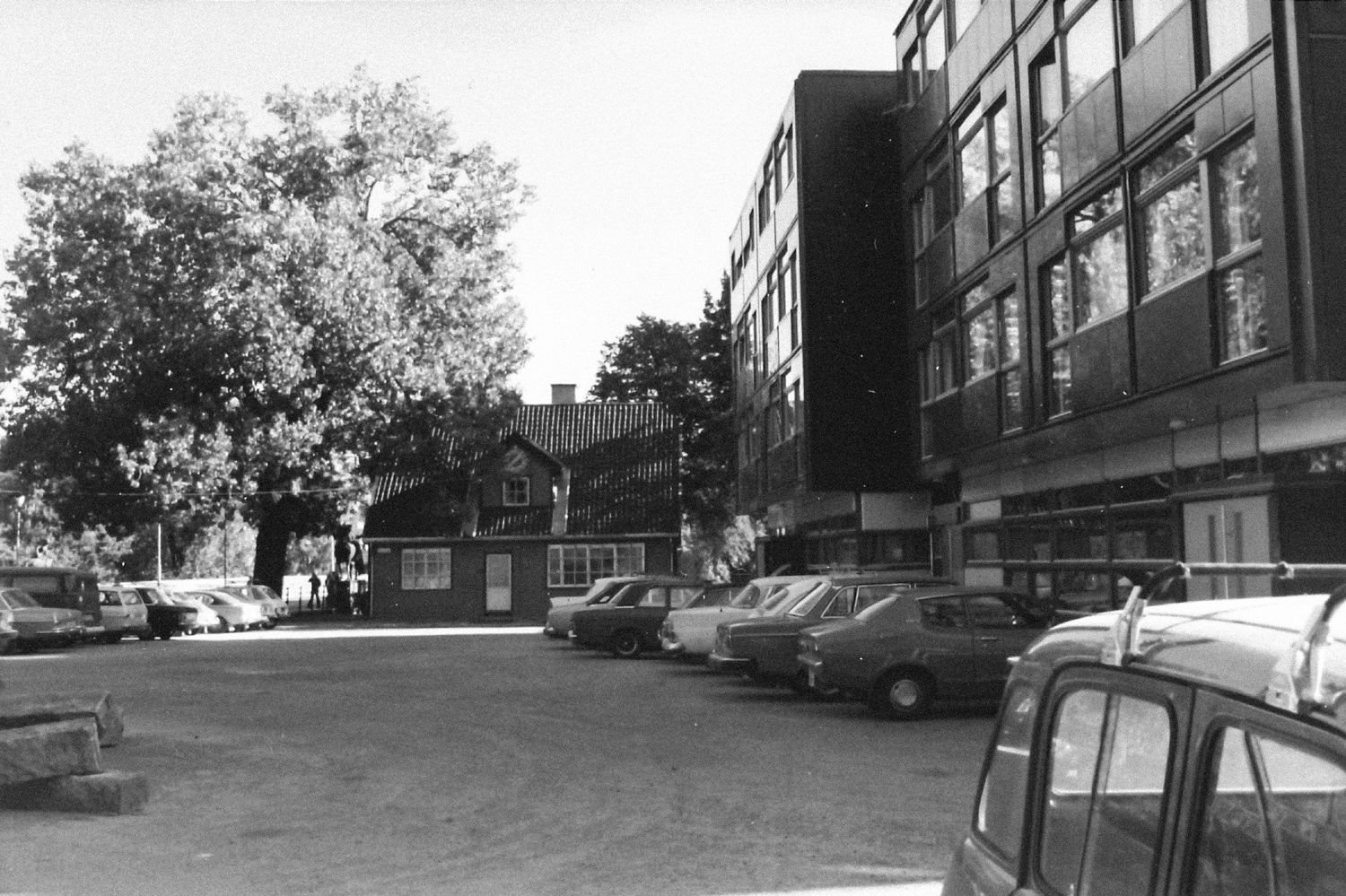
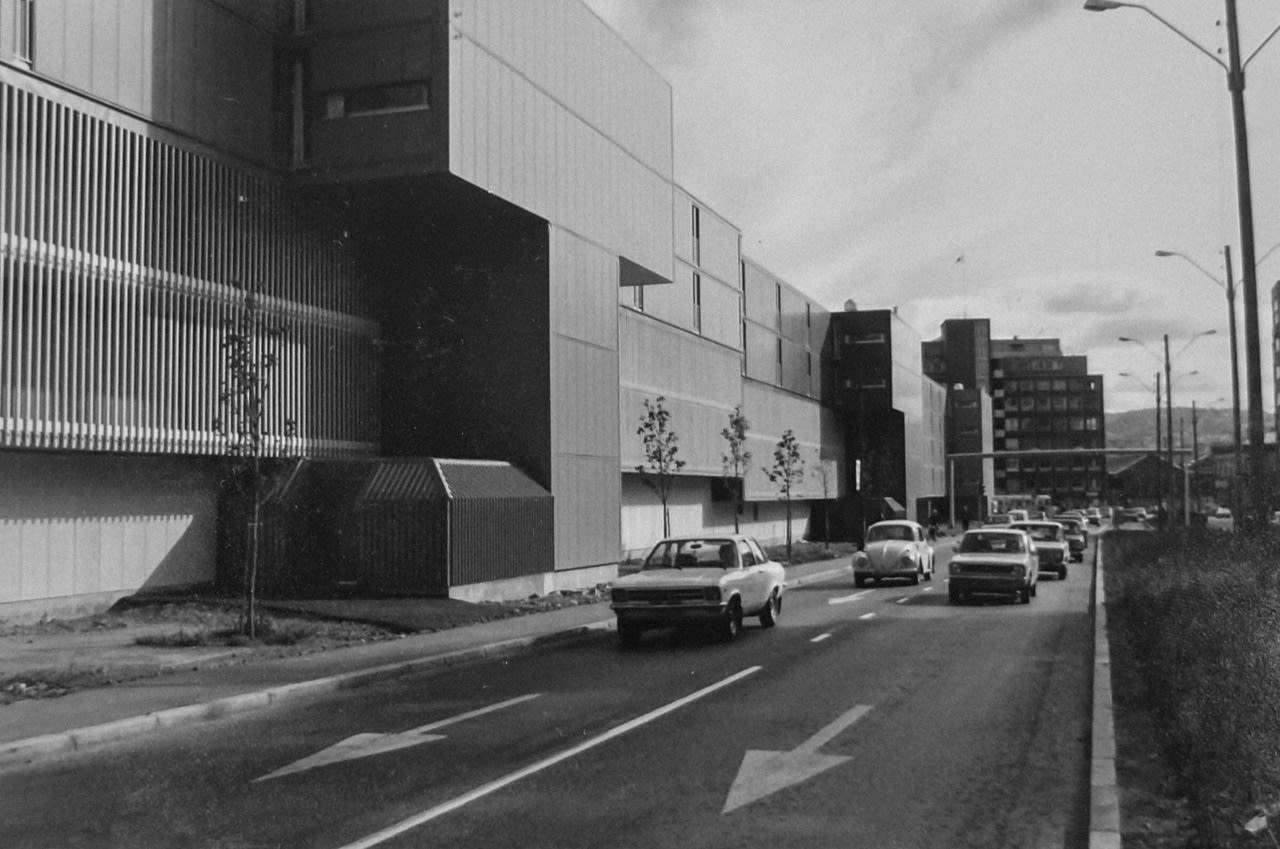




Where does the name Anker come from?
The name Anker originates from "Ankerløkka", an area with historic importance. Through history housing a school, cemetery, gasworks, a marketplace and a bus terminal. Initially known as Trælevolden and Hausmannsløkken. It later recieved the name "Ankerløkka" when acquired by Karen and Christian Ancher. Their son, Peder Anker, transferred the land to the Oslo municipality in 1823, influencing its future.
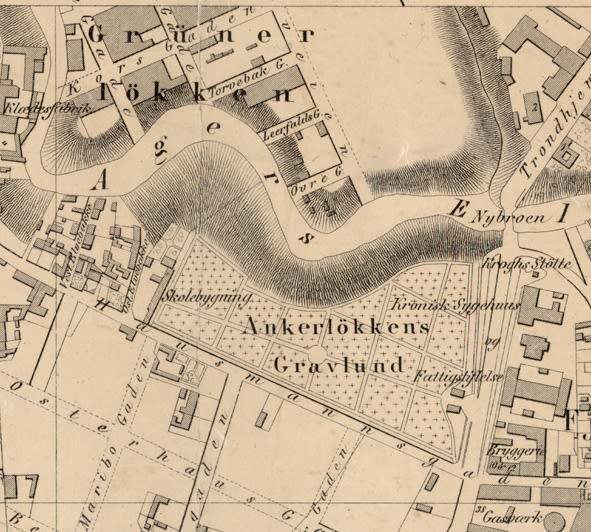
1970s
Where our story started
In the vibrant tapestry of 1970s Oslo, the Anker Foundation emerged as a collaboration between the Oslo Municipality, LO (the Norwegian Confederation of Trade Unions), and NHO (the Confederation of Norwegian Enterprise). The mission was to improve the housing landscape for students in Oslo. Back then, the demand for student housing was overwhelming, strict and with endless waiting lists. The Anker Foundation's goal was to provide homes for those who were excluded from the rental market in Oslo. This included unmarried couples, people from Northern Norway, vocational pupils, single parents and apprentices.
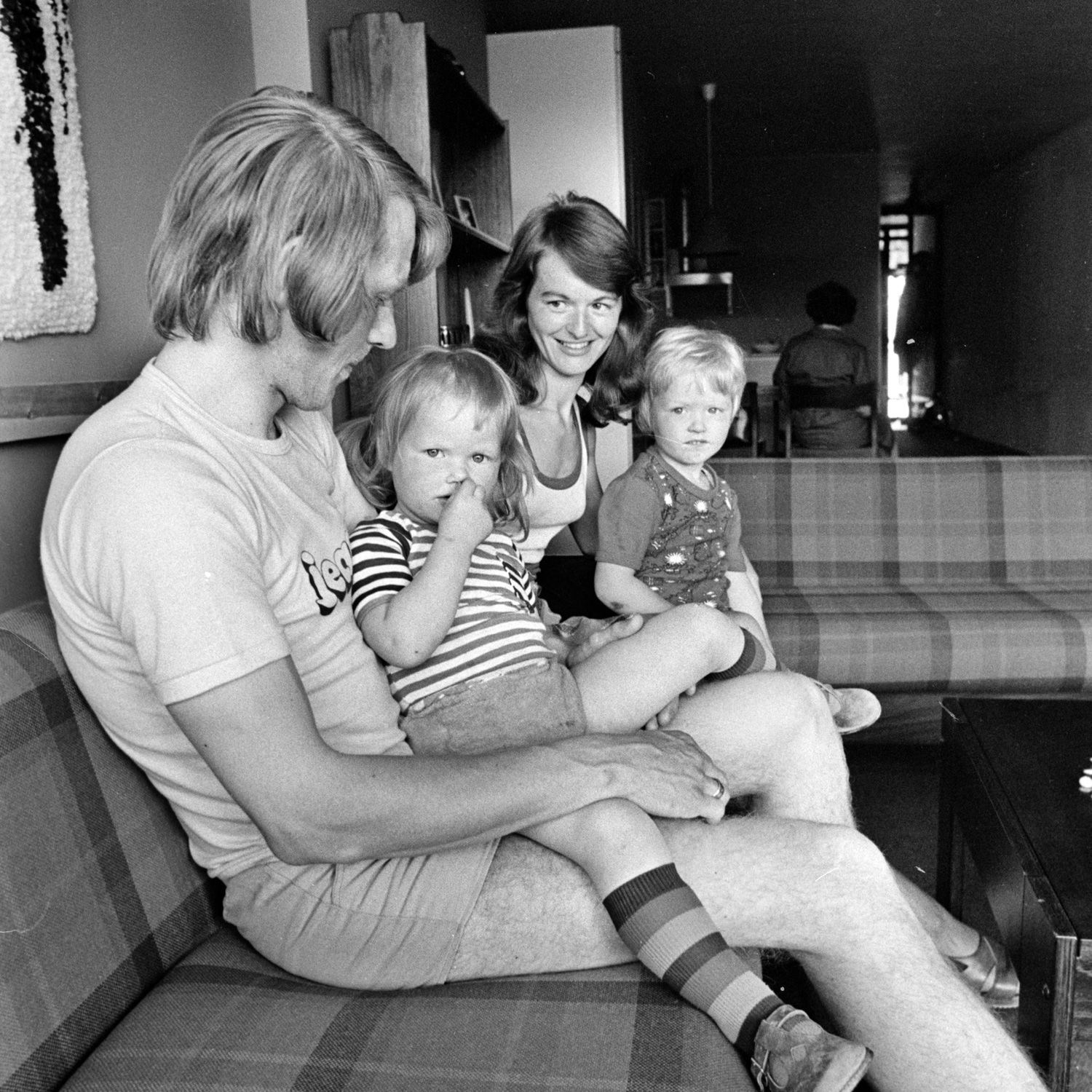
The turning point came when "Yrkesskolenes Hybelhus" (later known as Anker Studentbolig) officially opened it's doors in 1975, at Ankerløkka.
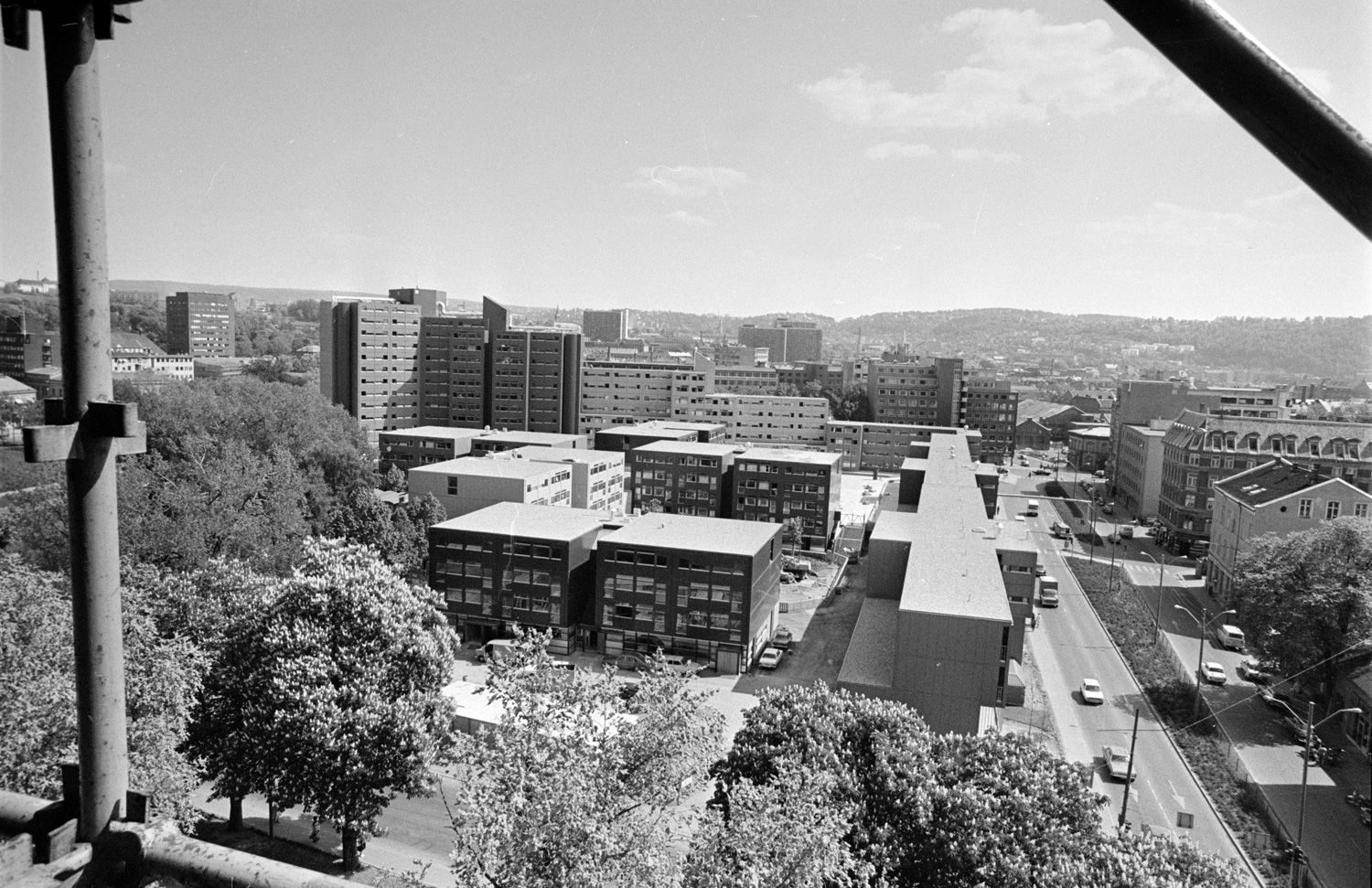
1980s
New ventures
To maintain affordable rents, the foundation ventured into commercial hospitality. Capitalizing on vacant student apartments during summer the foundation explored new possibilities. Student spaces were used in commercial hospitality in the early eighties, under the names Albert and Albertine. By 1985, this endeavour evolved into the year-round hotel we today know as Anker Hotel.
In the early years the hotel housed a disco, a small a la carte restaurant, catering, a bar and a cafeteria named Hjulet. The cafeteria served breakfast and an affordable buffet for students.
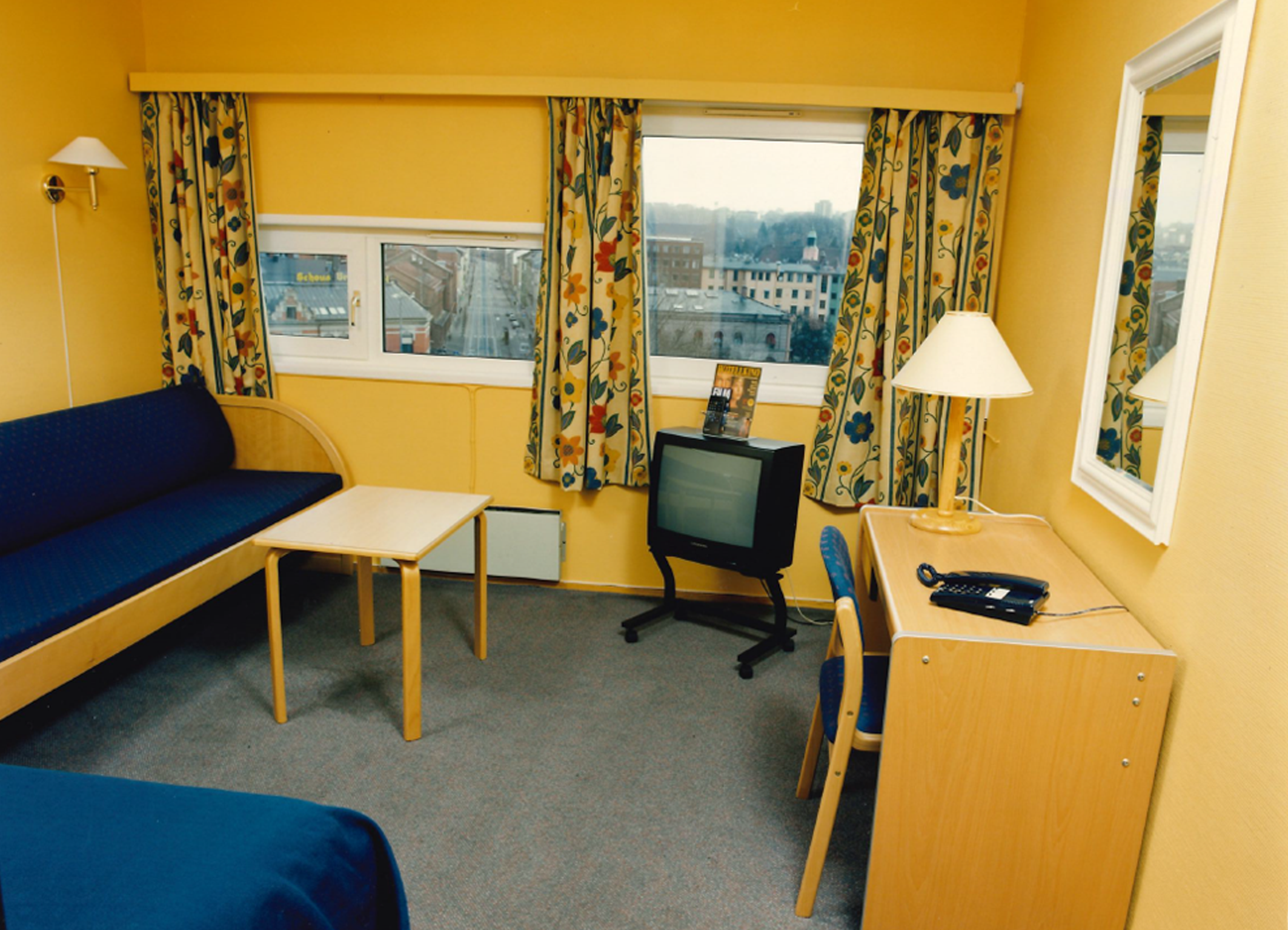
This strategic shift toward commercial hospitality enabled the foundation to offer student accommodations at lower cost than those in the private rental market.
The new venture sustained the mission and transformed Ankerløkka into a hub of activity, where the echoes of history harmonized with the vibrancy of new stories being made.
1990s
Navigating tough times
The nineties posed economic challenges, leaving the foundation in a precarious financial state.
Due to embezzlement the foundation was left with a deficit of 25 million kroner. There were no finances available to maintain operations as before.
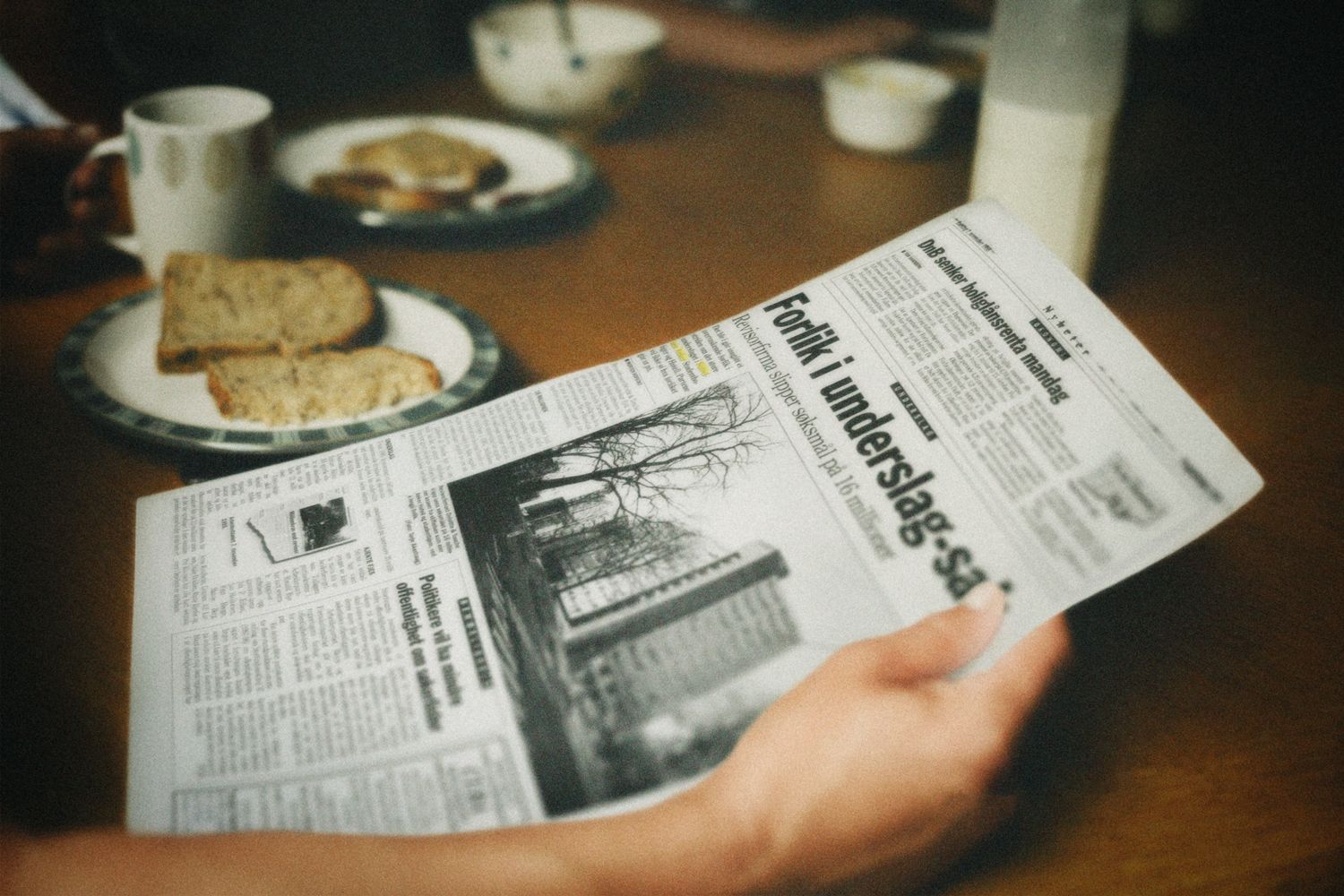
The hotel had to cut costs to the bone. During this time, Anker Hotel had to shut down the a la carte restaurant, the disco and buffet for students. The challenges in the nineties had ripple effects in the following years, with its impacts being evident in years to come.
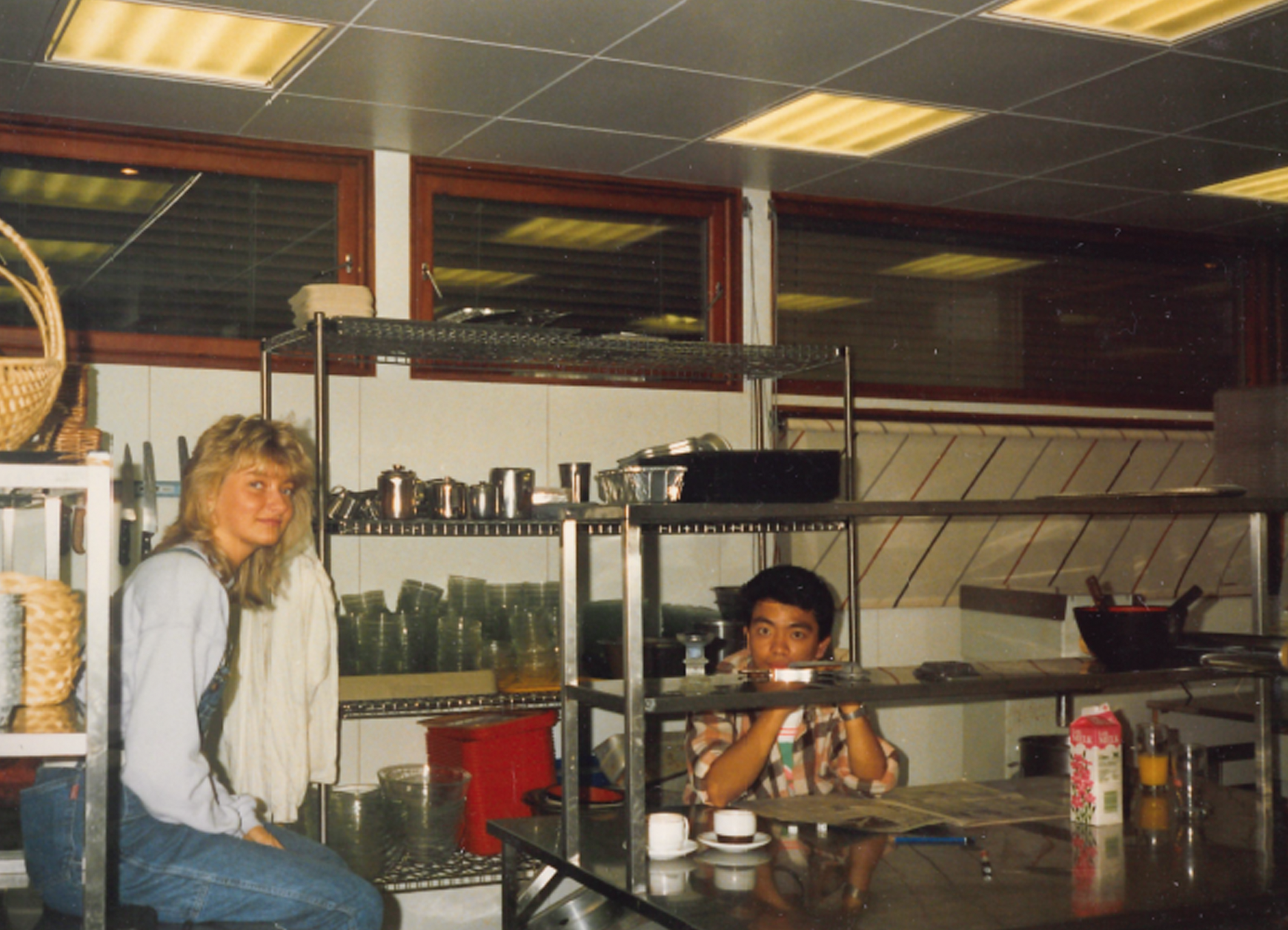
A new leadership undertook the challenging task of revitalizing the finances. The new strategy emphasized expansion and cost efficiency.
2000s
A turning point
The onset of the new millennium sparked a pivotal period for the Anker Foundation. From 2001 to 2003, a transformative chapter began with the expansion of 300 student apartments at Ankerløkka. New commercial spaces on the ground floor rejuvenated the once-criticized facades facing Storgata and Hausmannsgate. In a bid to make the area more inviting, Anker Hostel moved in at Storgata 53A. As the first of it's kind, this new venture provided an affordable alternative for young travellers.
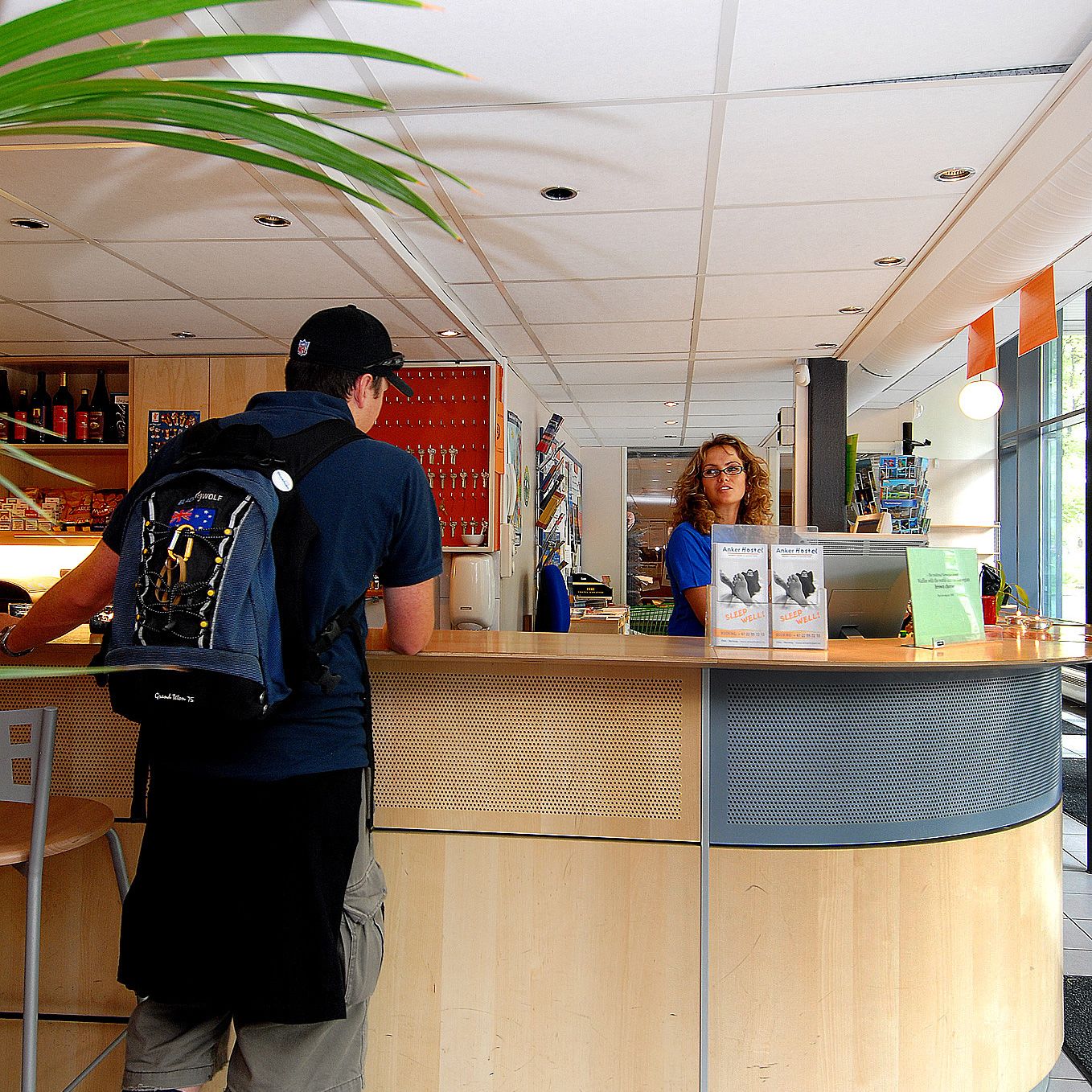
Anker Hostel in 2006
Anker Hostel in 2006
Expanding beyond Ankerløkka for the first time in 2009, new student housing locations at Trondheimsveien 37 and Wilses gate 3A and B came to life. Despite scepticism from employees, these new locations proved to be a resounding success. This era marks a turning point in our story.
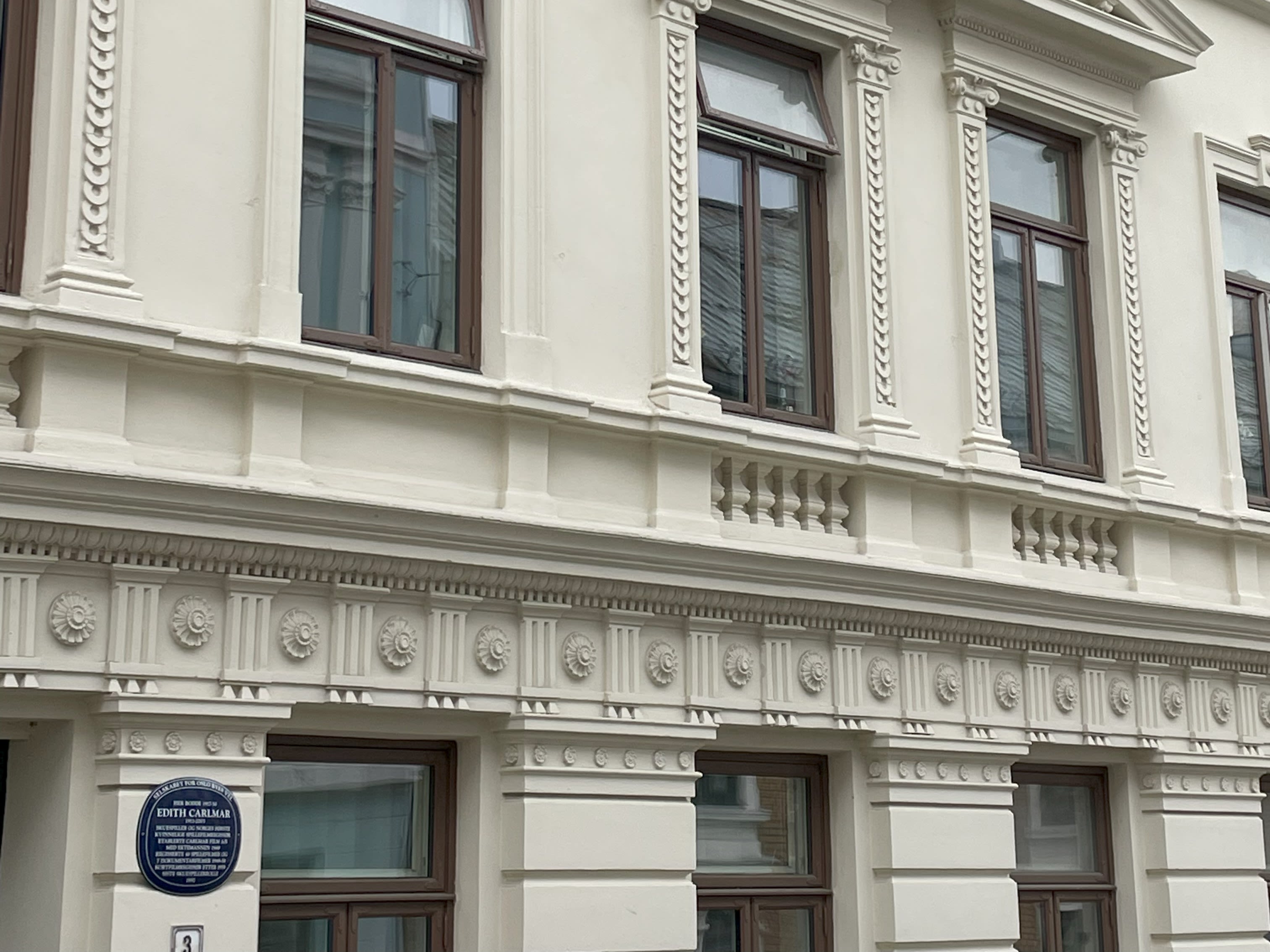
Wilsesgate 3
Wilsesgate 3
2010s
An era of transformation
Experiences in the early 2000s paved the way for a flourishing decade.
By achieving economic stability, the foundation was able to expand further. This path led to the acquisition of Københavngata 10, a historic building that once housed the renowned "Bergene" Chocolate factory.
Inspired by the success at Ankerløkka, Københavngata 10 also bacame a mixed-use development, blending studio apartments, dormitory-style accommodations, and 284 apartments for students. The goal was to create a dynamic living space for both students and travellers. This new development officially opened its doors in 2013.
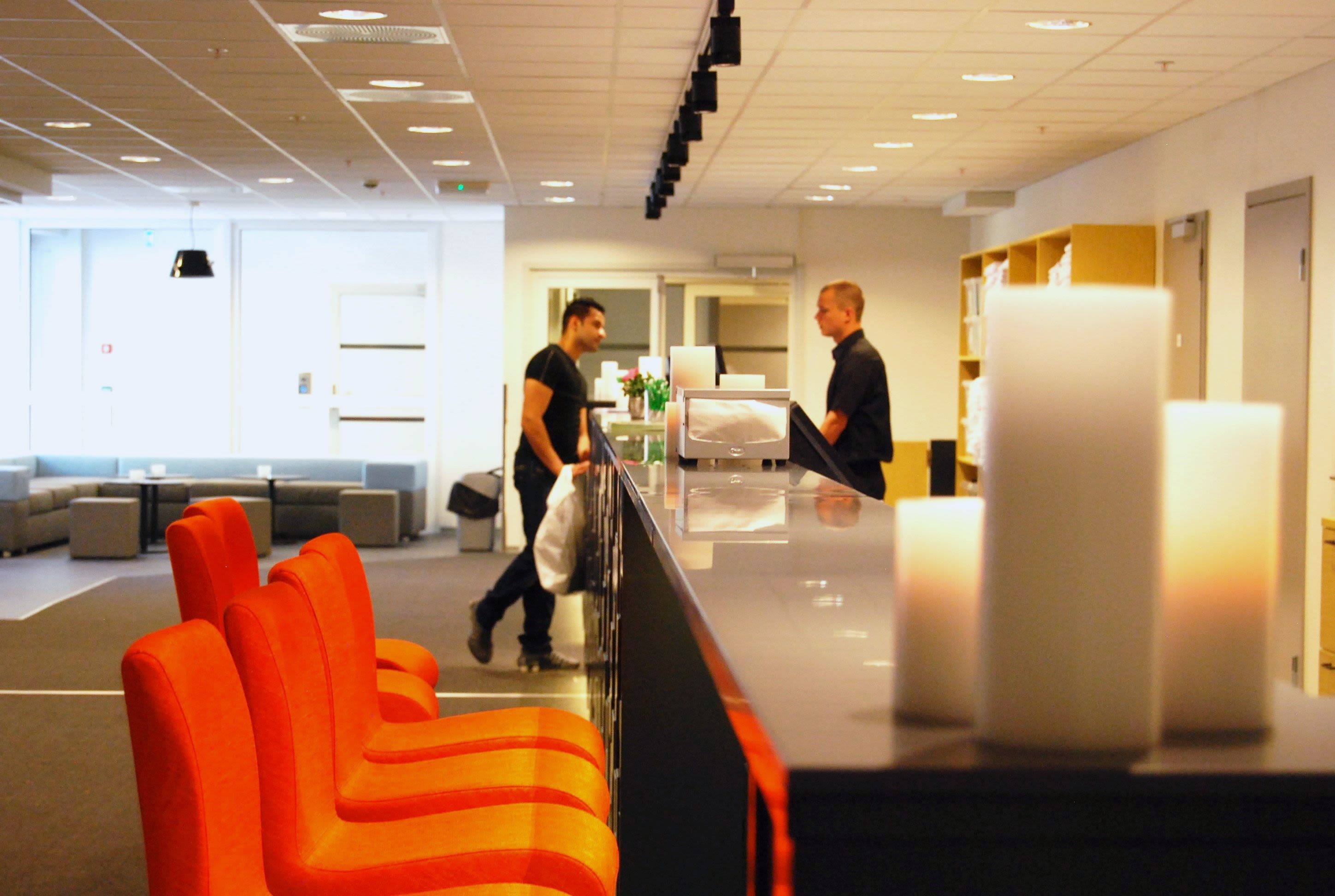
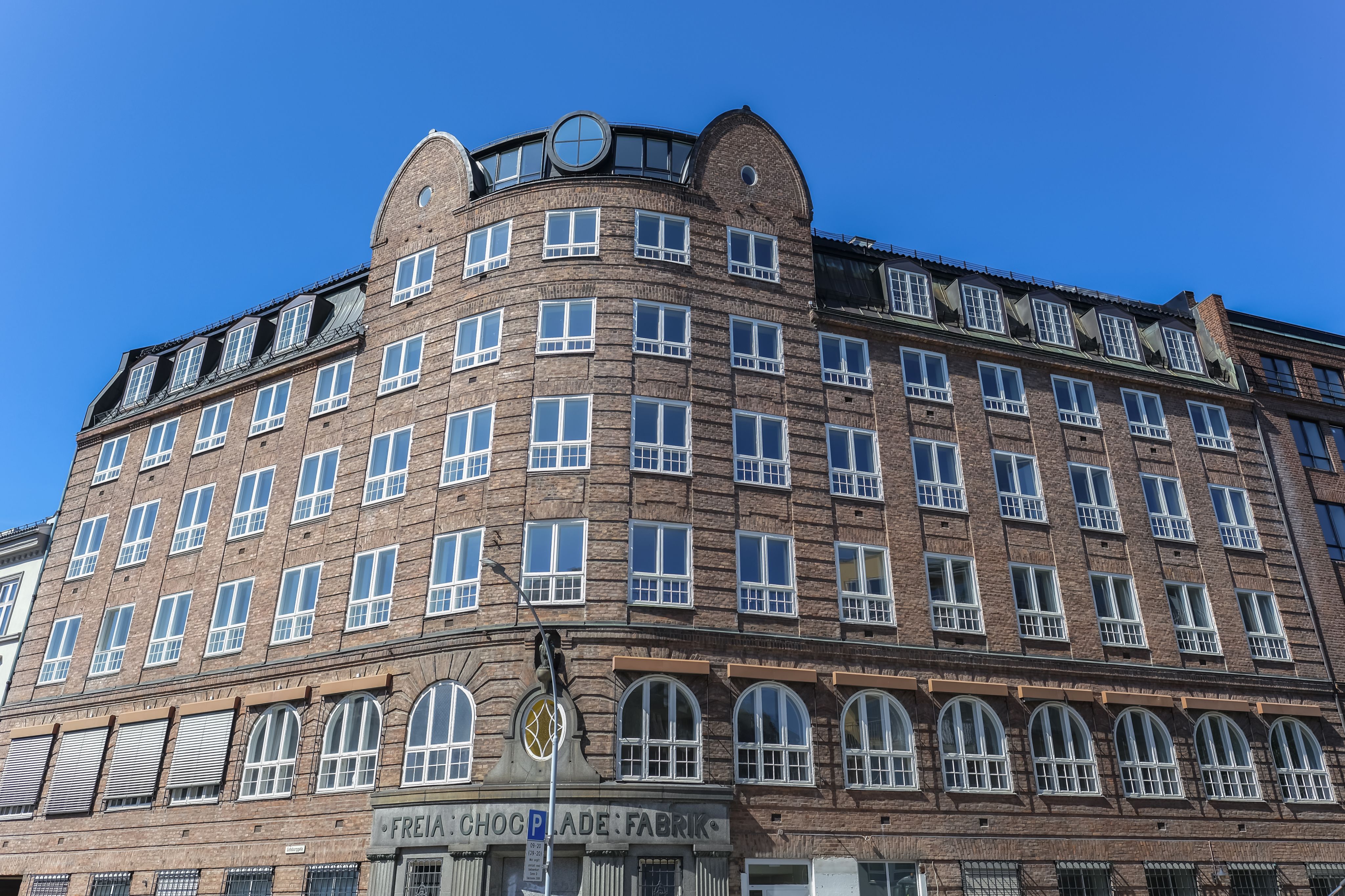
Gøteborggata 8B
Gøteborggata 8B
The demand for student housing in Oslo echoed the very beginnings of the foundation's journey. In response to a pressing shortage of affordable accommodations, significant action was taken. In 2018, Anker acquired Gøteborggata 8 B and transformed it into 133 beautiful apartments with a historical backdrop as the former Freia Chocolate factory. The momentum continued into 2019 with further expansions at Sandakerveien 76, offering a total of 386 student apartments.
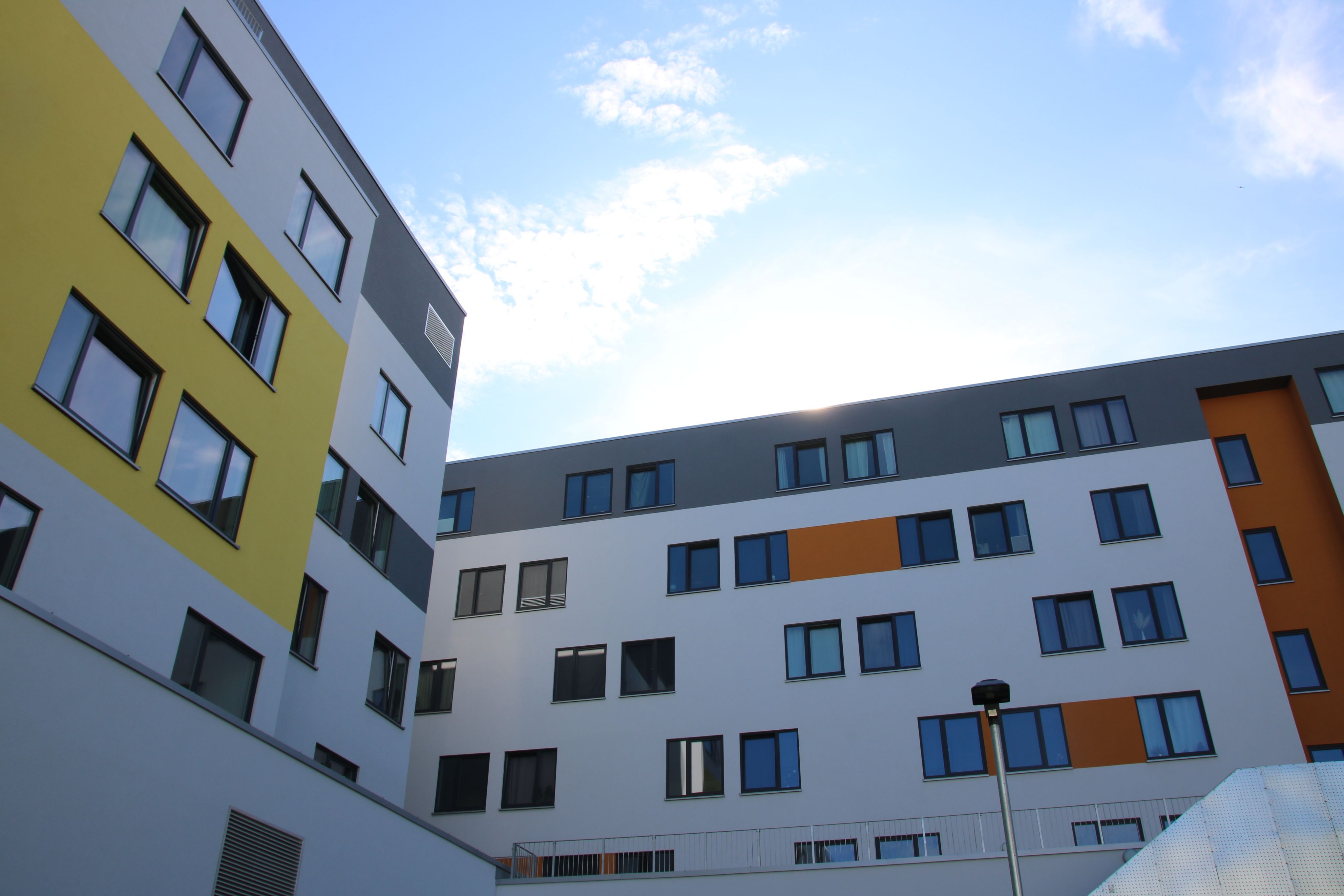
Sandakerveien 76
Sandakerveien 76
In the latter part of the decade, internal challenges led to a reevaluation of priorities. Recognizing the need to foster a better work environment, a new approach was initiated. Emphasizing inclusion and upholding core values, new leadership took charge. With renewed determination, the foundation entered a new era with focus on growth, sustainability, digitalization and operational efficiency.
2020s
The future is bright
The year 2020 dawned with promise, but quickly unfolded into a saga of unforeseen crises with Covid-19.
Students, no longer bound to the city for lectures, dispersed, leaving behind vacant spaces.
For Anker the pandemic delivered a formidable blow. However, as the government extended its economic lifeline, the majority of students chose to weather the storm in Oslo, hopeful for a society on the cusp of reopening.
The narrative also took a turn for commercial hospitality. With travel, business and leisure coming to a grinding halt, the new leadership embraced creative solutions to maintain stability.
The reopening of Oslo resulted in a notable increase in demand for both student accommodations and hotel rooms.
With a spike in activity levels, the foundation found renewed inspiration for advancing every facet of the organization. This entailed not only the comprehensive refurbishment of Anker Hotel but also visionary plans for revitalizing surrounding areas.
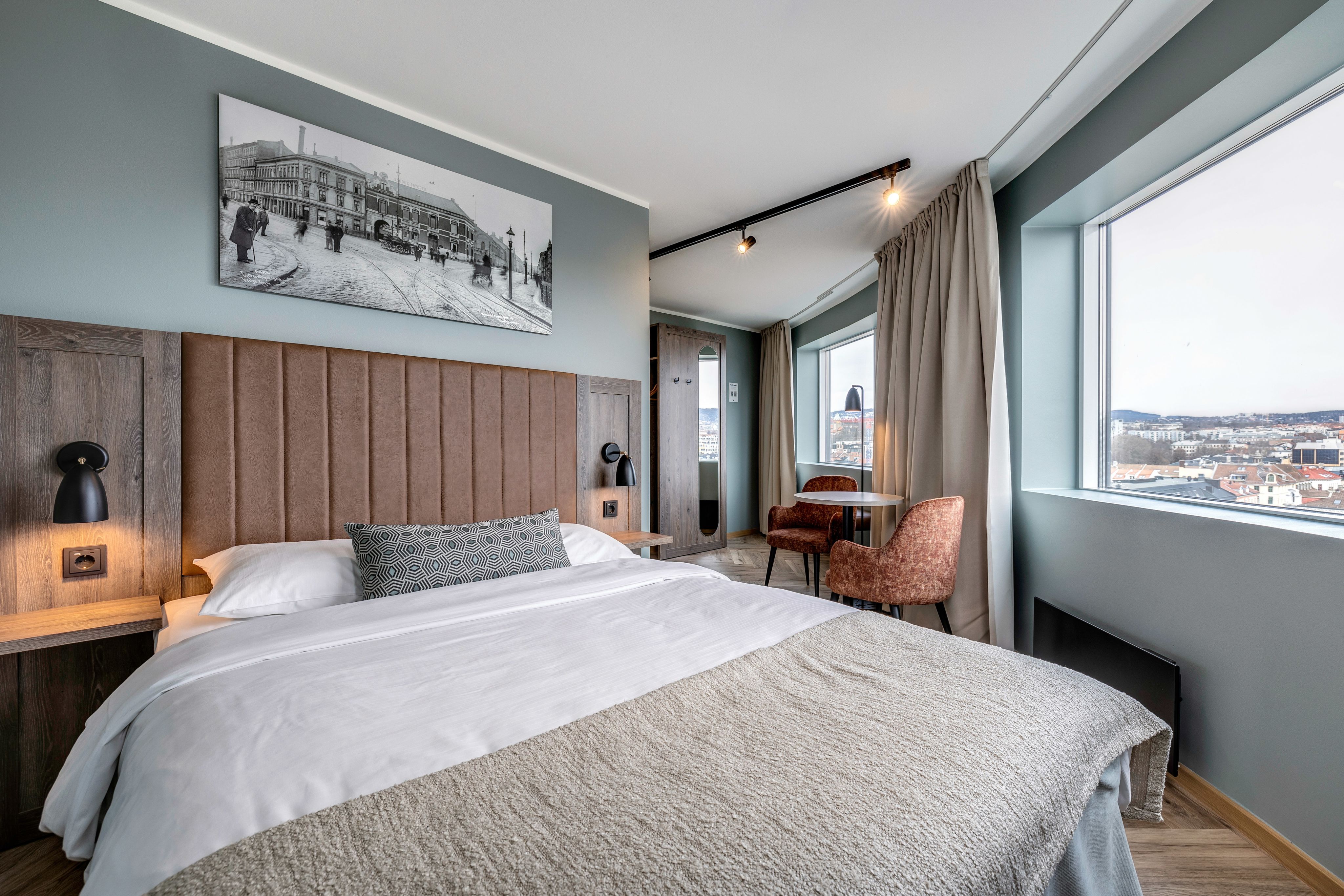
Refurbished hotel room at Anker Hotel
Refurbished hotel room at Anker Hotel
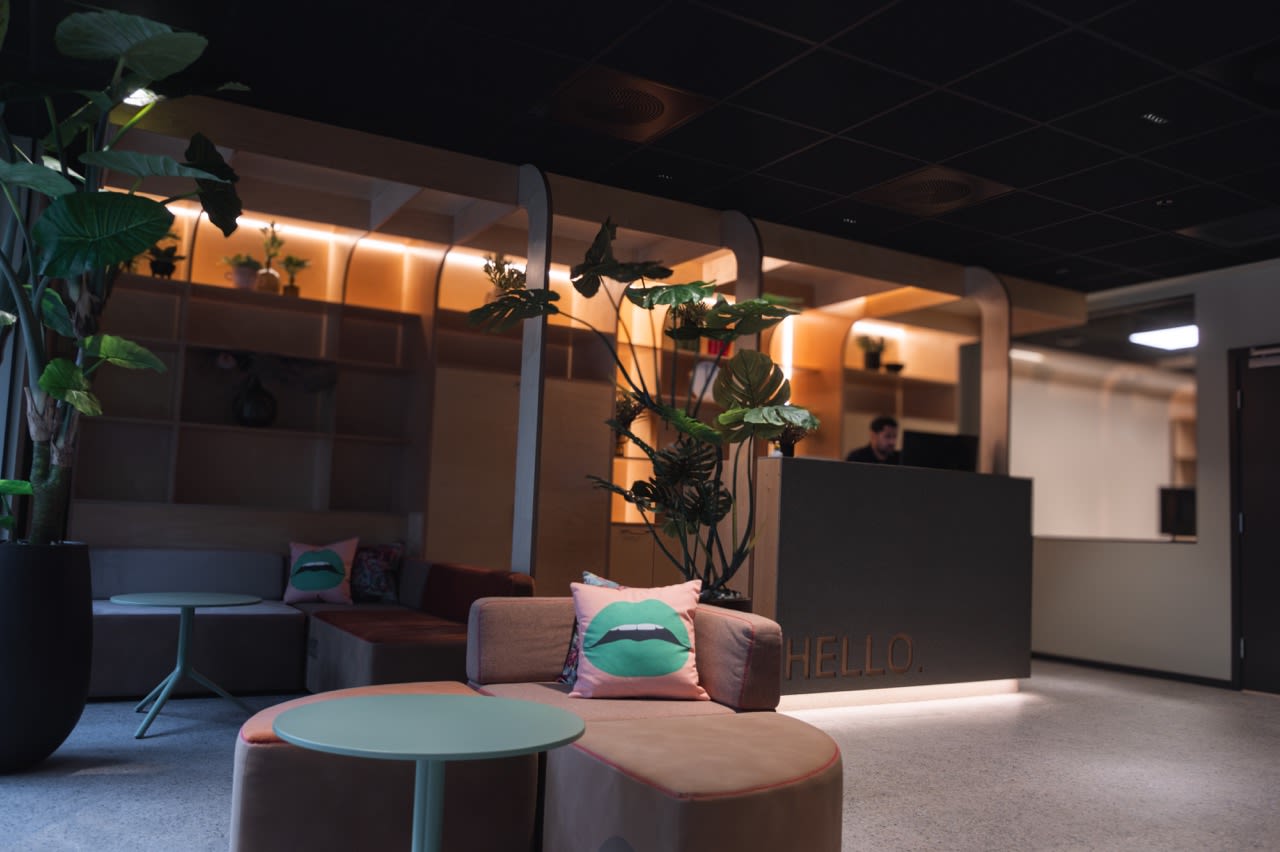
New reception at Anker Apartment opened in 2023
New reception at Anker Apartment opened in 2023
In addition to these efforts, the foundation championed sustainability initiatives, implemented shared facilities for students, and embarked on further expansion and innovative concept development. The momentum for growth and improvement was tangible, driving the foundation into a vibrant phase of transformation and progress.
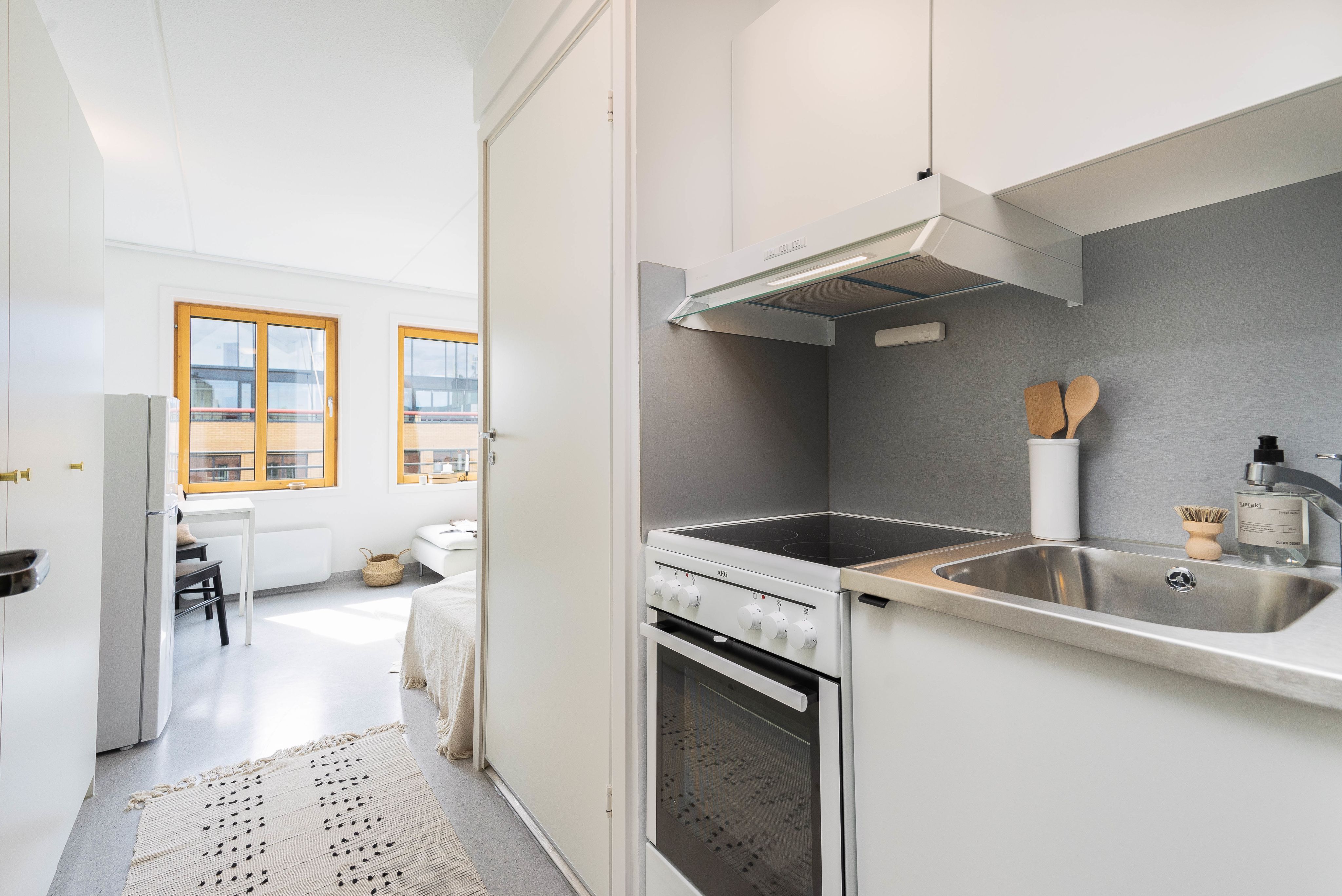
Renovated student apartment at Ankerløkka
Renovated student apartment at Ankerløkka
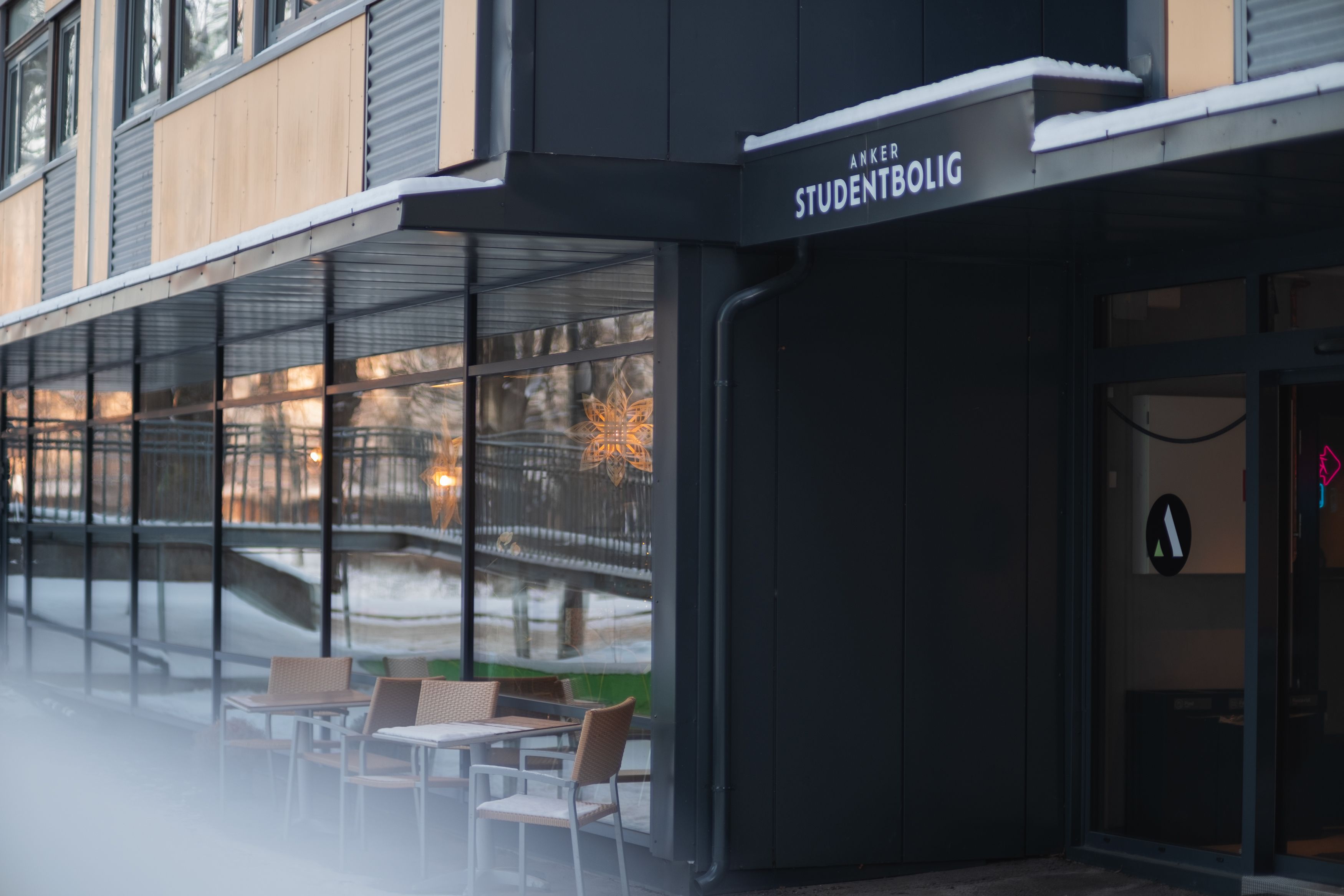
New student facilities
New student facilities
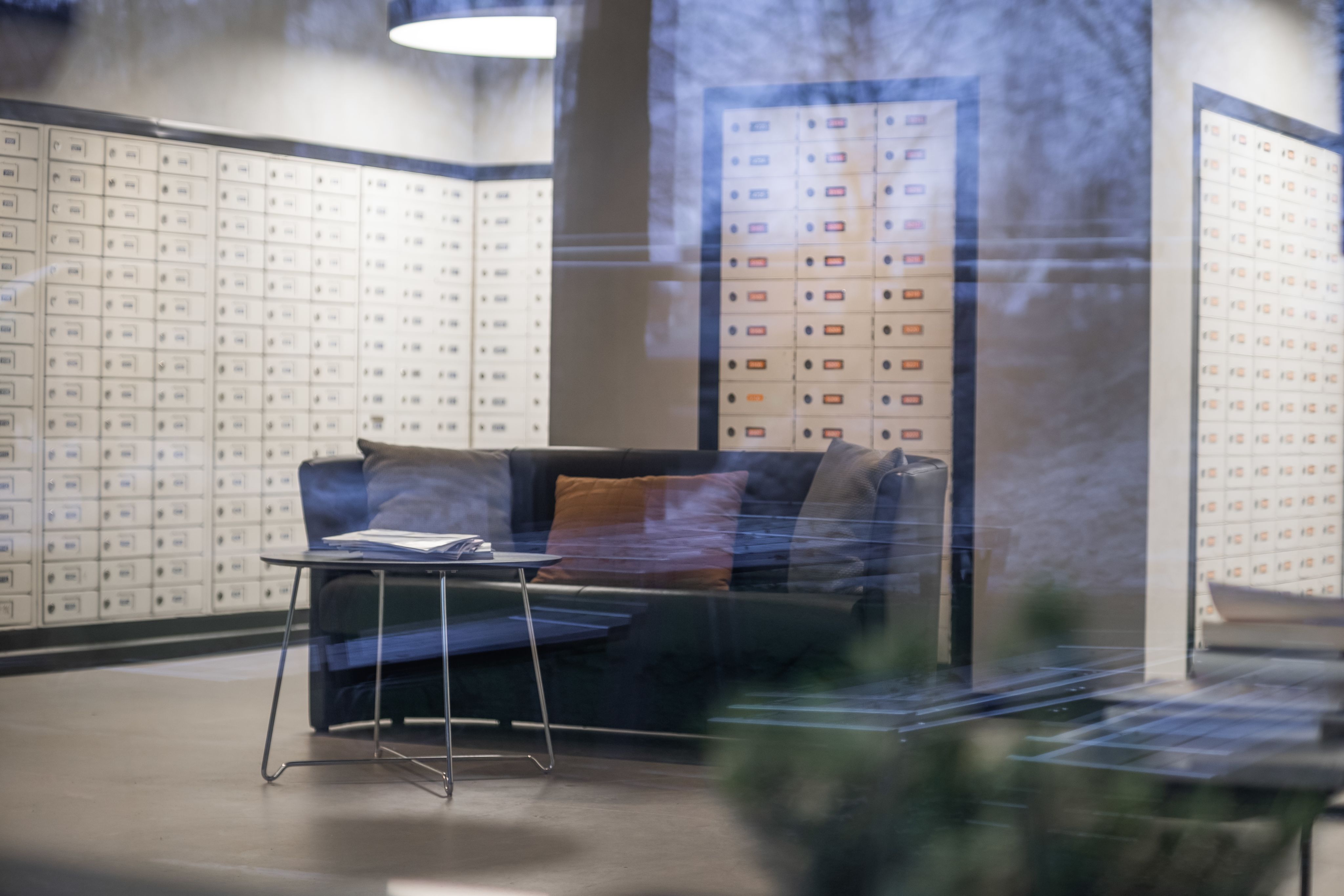
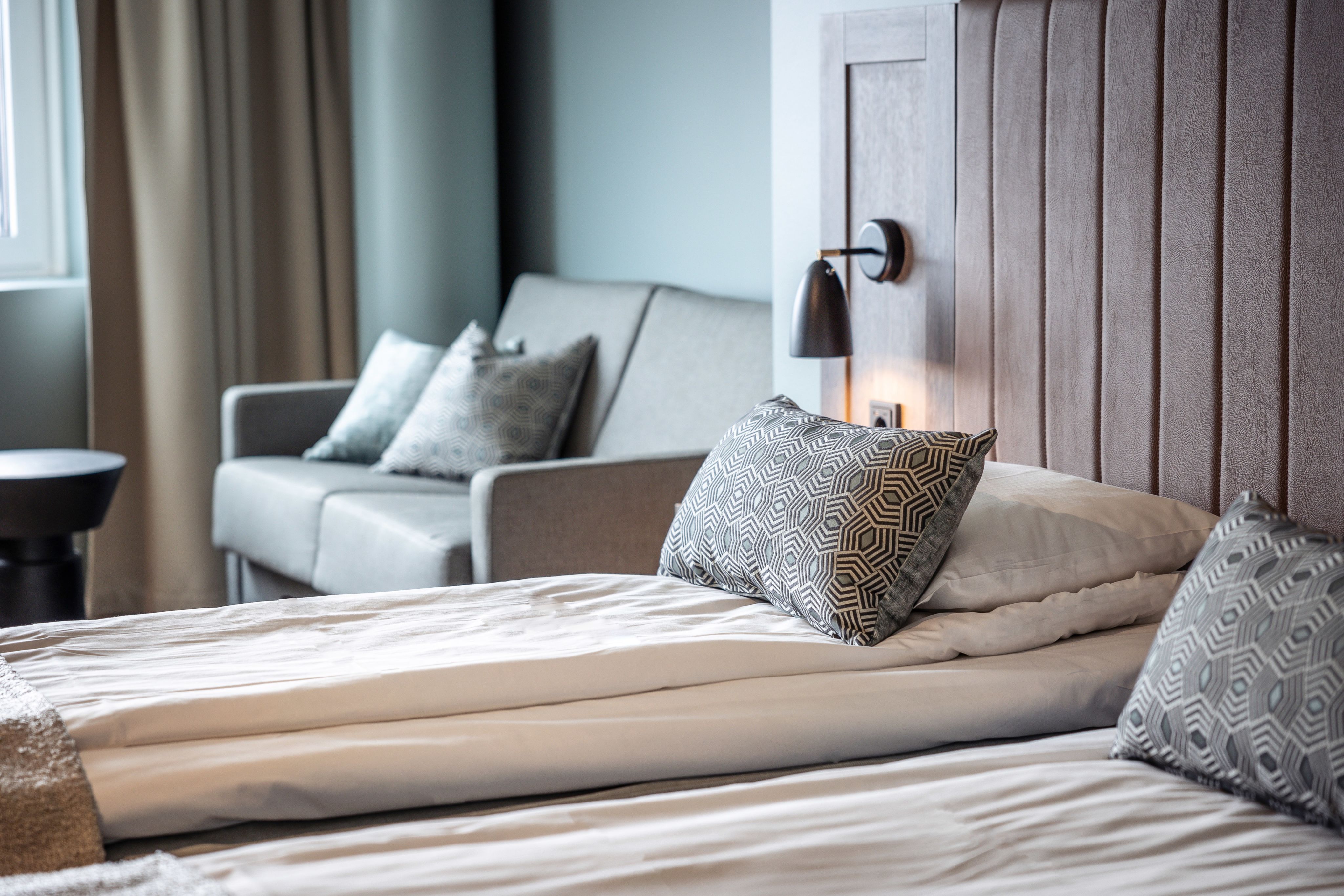
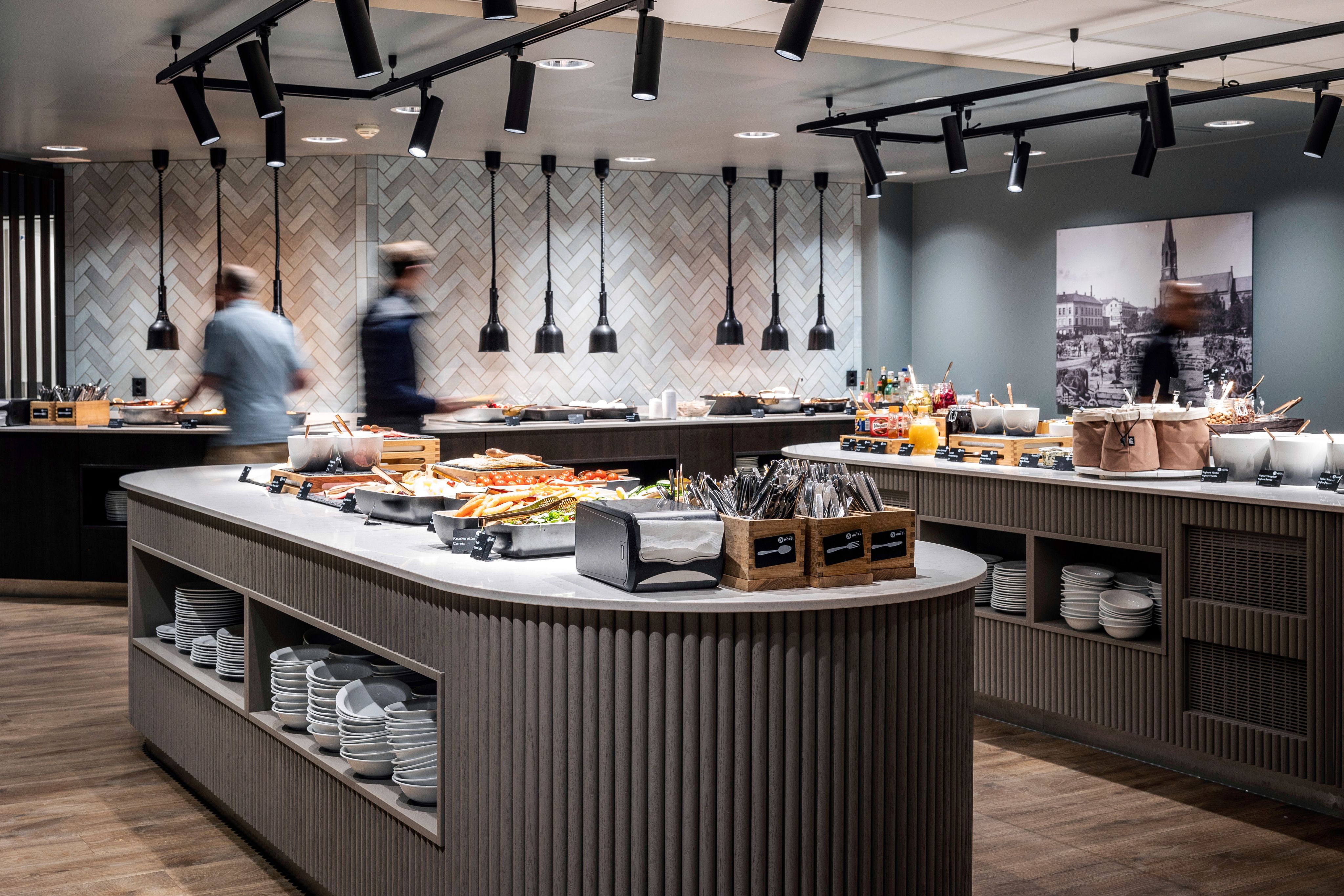
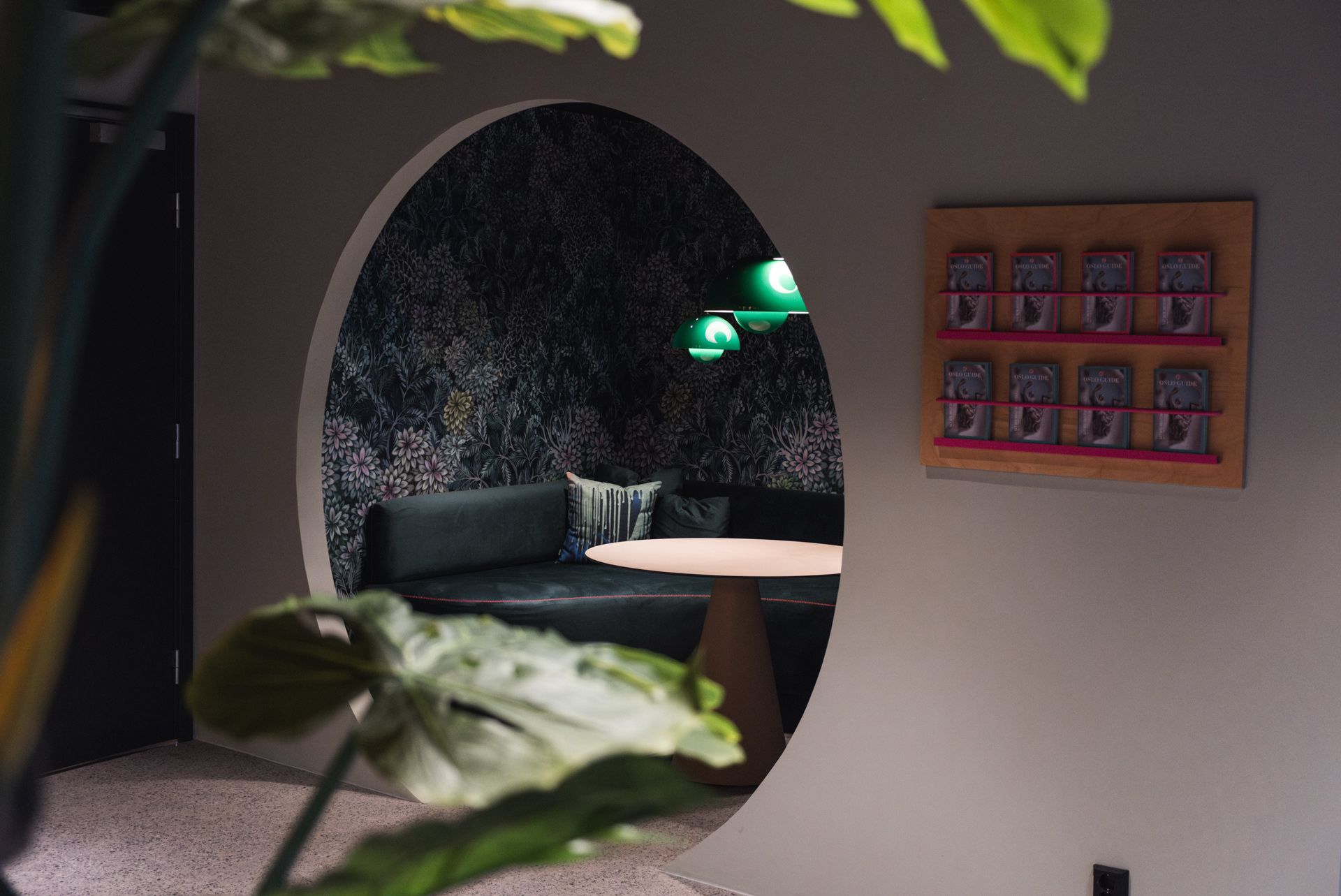
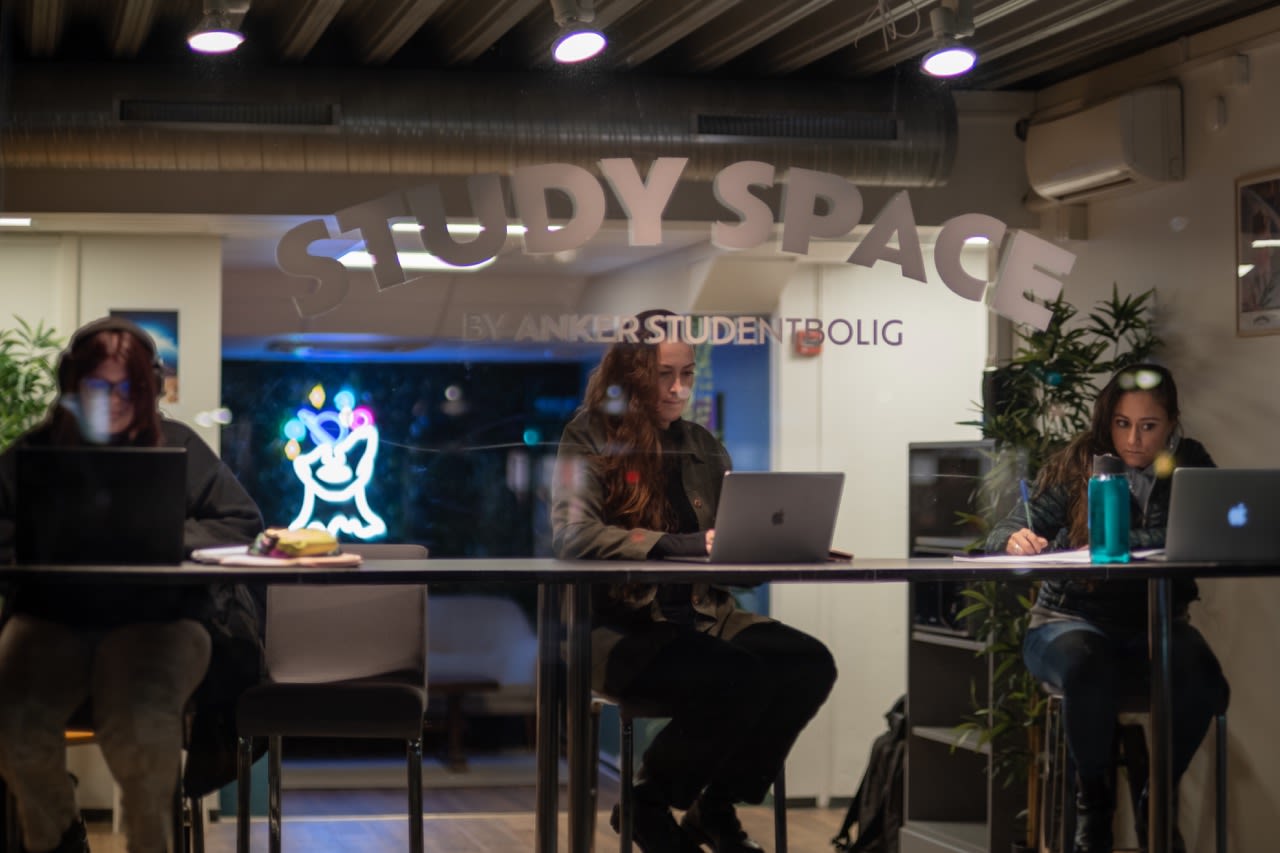
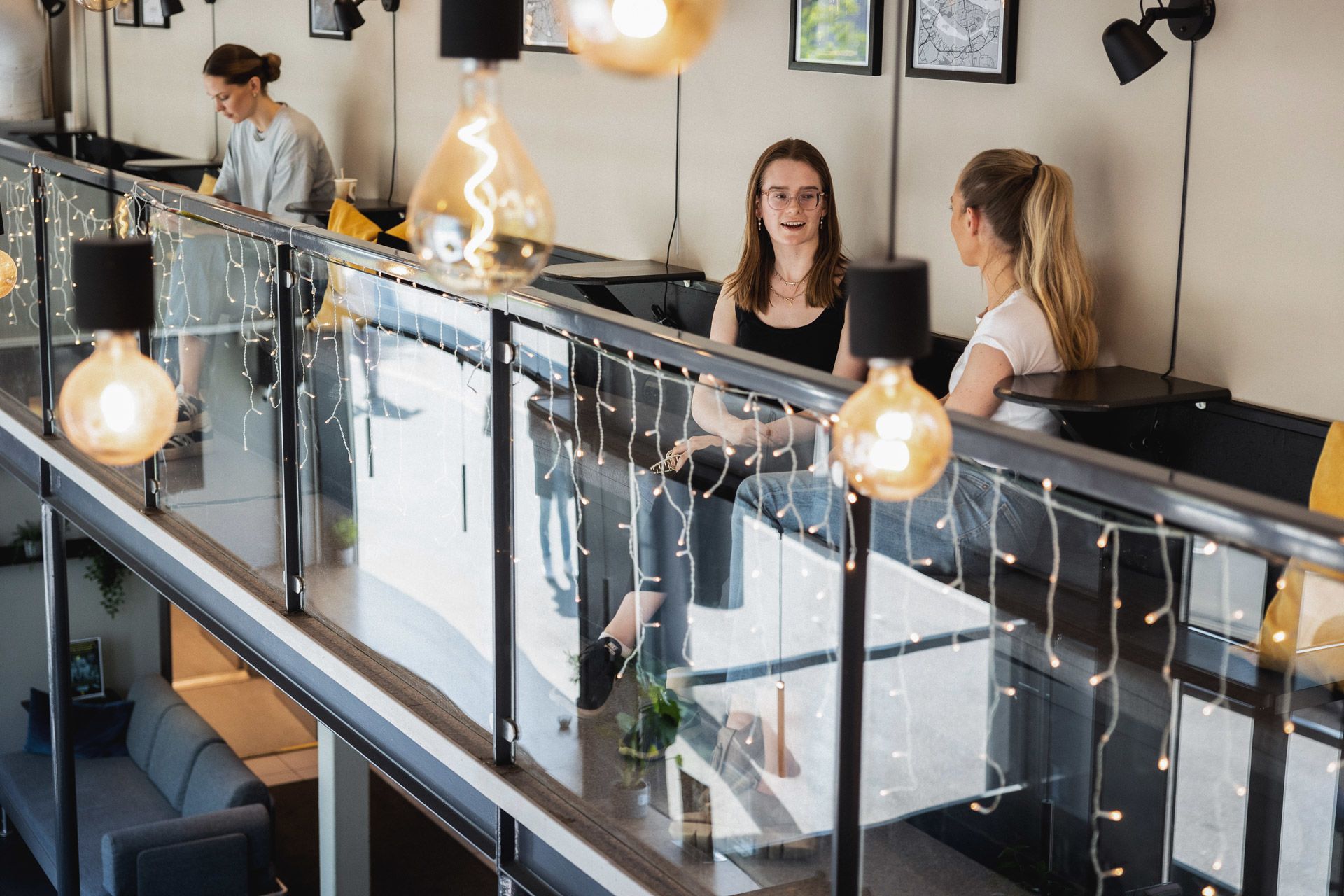





Implemented Initiatives
2020-2024: Refurbishing student apartments at Ankerløkka
2022: Etablishing Servicetorget with student facilities
2022: Acquisition of Platousgate 14-16
2023: Establishing energy wells in Københavngata 10 producing 1 million kwh energy annually
2023: Connected Ankerløkka to district heating in order to reduce CO2 footprint
2023: Implementing a digital key system for students. (Ilock/Guestcompass)
2023: New sustainable solution for garbage disposal
2023: Renovations at Anker Hotel; breakfast buffet and hotel rooms.
2023: Establishing ‘Study Space’ in Hausmannsgate 8E
Ongoing projects
2024-2025: Refurbishing hotel rooms at Anker Hotel
2023-2024: Comprehensive signboard plan for Ankerløkka and Københavngata 10.
2023-2024: Refurbishing 130 student apartments at Storgata
2023-2024: Transformation of Ankertorget and the creation of a vibrant social garden in the inner backyard.
2024: Refurbishing Københavngata 10
2024: Refurbishing rooftops at Ankerløkka
2024: Construction of new student apartments in Platous gate.
Consistently highlighted in our story is the unwavering dedication to students.
This imperative remains just as crucial and steadfast on the agenda today as it has been, since 1975.

